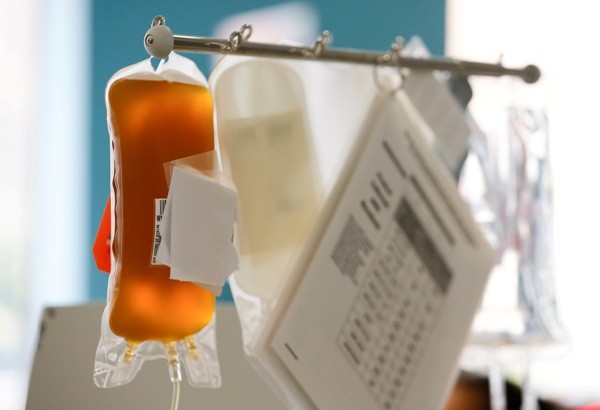FDA Puts Emergency Approval for Blood Plasma as COVID-19 Treatment on Hold
The U.S. Food and Drug Administration (FDA) put the emergency use authorization for blood plasma as a COVID-19 treatment on hold, reported The New York Times.
The FDA had been planning to give the authorization for blood plasma last week, but top health officials intervened.
Dr. Francis Collins and Dr. Antony Fauci argued that the emerging data on the COVID-19 treatment was too weak.
While the FDA approval was halted, Dr. H. Clifford Lane of the National Institute of Allergy and Infectious Diseases said blood plasma can still be issued as a COVID-19 treatment. The agency will need to review the data on the matter first.
"Per policy, we are not able to comment on whether or not we will take any action regarding emergency use authorization for convalescent plasma," the FDA said in a Reuters report.
The National Institute of Health did not respond to the news site's request for comment yet.
How can blood plasma health in COVID-19 treatment?
Blood plasma from a person who survived an infectious disease such as COVID-19 contains antibodies. It can also have proteins created by a person's immune system to fight off a virus.
This treatment can help newly infected patients by transfusion to try and aid in their recovery.
FDA emergency use approval could help patients gain faster access to COVID-19 treatment.
According to CNN, an emergency use approval does not need the same proof as a full approval.
Emergency use was previously given to hydroxychloroquine and chloroquine for COVID-19 treatment. They later withdrew it in June after it was found ineffective against the virus.
Antibody-rich blood plasma is considered safe, having been donated by people who survived the disease. President said it was a "beautiful ingredient" from the veins of people who survived COVID-19.
There haven't been any clinical trials that proved whether blood plasma could help people in fighting COVID-19.

When top health officials such as Dr. Collins, Dr. Fauci and Dr. Lane urged their colleagues to hold off the emergency use approval, they cited data from Mayo Clinic. The Mayo Clinic is conducting the country's largest plasma study.
The health officials believe that data on blood plasma is still not enough to warrant emergency approval.
"The three of us are pretty aligned on the importance of robust data through randomized control trials, and that a pandemic does not change that," Dr. Lane said Tuesday.
In the draft for the approval, the history of plasma in other disease outbreaks was highlighted. Animal research and a spate of plasma studies, as that of Mayo Clinic, were also part of the draft.
Physicians have been using the treatment since March, and have given more than 66,000 infusions to COVID-19 patients. They were financed by the federal government.
Nearly 14,000 doctors are also using at as a part of a program run by Mayo Clinic. But it is still not clear if it works.
Several studies are underway to prove the effects of blood plasma as a treatment for COVID-19.
Check these out!
COVID-19 Saliva Test Partly Funded by NBA Gets FDA Emergency Use Approval
Coronavirus Vaccine Trials Have Been Slow to Recruit Latino People
US, Moderna Ink $1.5 Billion Deal on COVID-19 Vaccines
Subscribe to Latin Post!
Sign up for our free newsletter for the Latest coverage!
© 2025 Latin Post. All rights reserved. Do not reproduce without permission.















